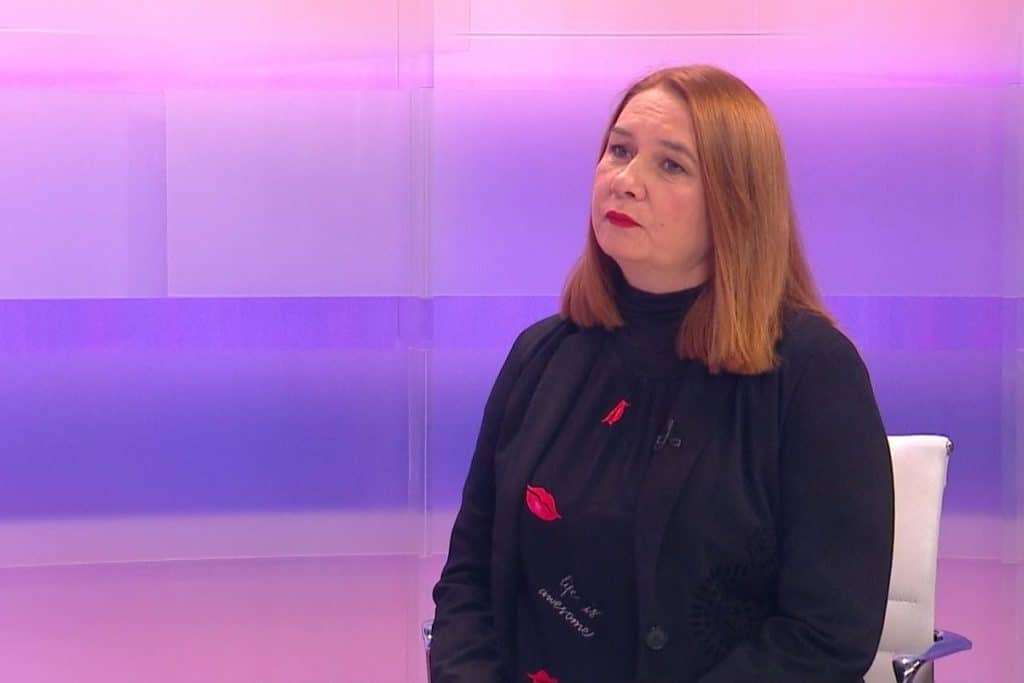Olja Družić Ljubotina, the initiator of the Every Child’s Right to School Meal initiative, was a guest in Točka for a week. She spoke about the initiative’s efforts to ensure that every schoolchild in Croatia has the right to a hot meal.
“We were received by the prime minister six months ago. The meeting was very optimistic and gave the green light to the ministers to solve the problem of universal nutrition for all children in Croatia.
I spoke optimistically then because he gave us a lot of material for that. However, six months have passed and there are no concrete developments. Nevertheless, meetings with some of the ministers followed and it was delegated to make a complete analysis of nutrition in schools. We had several good meetings with Minister Vučković. The situation stopped sometime before the summer, which does not mean that it will not continue,” she said.
As he states, there are no data on how many children are hungry in schools, but we can have our doubts.
“In Croatia, there are about 14,000 children who live in deep poverty, who are guaranteed minimum benefits. On the other hand, we have about 270,000 children who receive child allowance, which are actually received by families with children who are at risk of poverty. We asked the principals if there are hungry children and 40 percent of them told us that there are children who would be entitled to a free meal, but they do not enter the quota and do not eat a single meal during the entire school day,” she said.
He says that the ministries have been tasked with obtaining a complete analysis of how many such children are in schools.
“We have information that it is being worked on. We will continue to put pressure on the Government and the ministries to resolve it. What worries us is that the Ministry of Education is coming out with the famous year 2027, when the problem of nutrition will be solved from MPO funds. It is out of the question that this problem drags on until then,” she said.
He says that the number of parents who cannot afford a hot meal for their children is increasing. The number of directors seeking foreclosures is also increasing.
“I think it is terrible that it is resorted to in the case of parents who cannot pay, not because they are careless, but because they are unemployed or have financial difficulties. I think enforcement is a socially insensitive institution that should not be applied to children. I understand that they also have to collect those debts,” she said.
According to him, if the price of food will increase, and the principle of promissory notes will be used, more and more parents will decide not to pay for their children’s meals.
“There will be social inequalities”
“More and more children will not eat at school, and there will again be a social stratification between those who have and those who do not have food,” she said.
He says that this is a situation that must be resolved immediately.
“It seems to me that there is no awareness of this. When we talk about the Ministry of Education, it seems to me that it has other priorities such as educational outcomes. The social components are not aware and do not understand that this is part of their responsibility,” she said.
He believes that this is not about money that cannot be insured.
“This is not money that would only come from the state budget. There are generous EU funds that could be used to ‘make up’ the part for nutrition. We cannot come to an agreement with the ministries and find a figure. We calculated two years ago that it would be around HRK 270 million per year, today it reaches HRK 550 million as the price of food has increased,” he says.
“Approximately as much as was found on Dana Škugora’s account,” added host Nataša Božić.
“Yes, that would definitely be enough,” confirmed Družić Ljubotina.
He states that every child must have the right to a hot meal because research has shown that “it is very well known whose parents pay for a hot meal, and whose are subsidized.”
“This is where social inequality occurs among children. Primary school education is free and compulsory, and everything that happens within that education should be accessible to children in an equal way. The European Commission states that it is very important to move towards universal measures within education,” she said.
He states that the fact is that we are getting poorer and that there are more and more people who will not be able to pay for their children’s meals.
“Then how to draw a line between those who can and those who can’t? “I have heard several times from the children how it was difficult and shameful for them to receive a free meal, so the teacher calls those who do not receive to stand up, so that she can record those who are entitled to a meal,” she said.
Track N1 via Android apps | iPhone/iPad and social networks Twitter | Facebook | Instagram.

